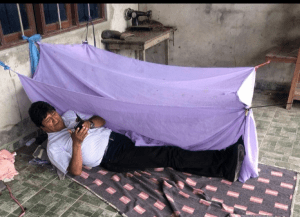A blog post by Chelsea Miles, Junior Associate.
Evo Morales made history as Bolivia’s first indigenous president and Bolivia’s longest-serving president.[1]Recently, Bolivia has experienced weeks of civil unrest which led to the deaths of at least 31 people.[2] The protests eventually led to the people of Bolivia to call for Morales to step down, Morales eventually resigned on November 20, 2019.[3] Protests ensued after the election held on October 20, 2019.[4] The preliminary results of the election showed that the votes were close enough that a second round election would be held.[5] Following those results, the live vote count was unexpectedly suspended for 24 hours.[6] When the live-results returned, it showed that Morales’ had a significant lead, putting an end to opponent Carlos Mesa’s hopes that there would be a second round.[7] The suspension of the vote count led to speculations about corruption in the voting process, and riots began to transpire.[8] The Organization of American States (OAS) held an audit of the election results, which showed that there was “intentional manipulation” and “serious irregularities” with the election results.[9] Following the release of the report, many protestors began to assemble and members of Morales’ party began to resign.[10]
On November 10, 2019, chief of the armed forces suggested that Morales step down as the Country’s president in order to maintain stability in the country.[11] Later that day, Evo Morales announced his resignation. Former President Morales later shared a photo on his twitter account of him sleeping on the floor, claiming that he was “forced by the coup” to flee his home.[12] Morales later fled to Mexico on November 12, 2019. Upon his departure from Bolivia, Morales’ sent a tweet to his followers, claiming that he will “return with more strength and energy.”[13] Senator Jeanine Añez is serving as the Country’s interim president.[14] Bolivia will now hold a Presidential election, which is set to be held on May 3, 2020.[15]
[1] Anatoly Kurmanaev & Cesar Del Castillo, How an Unknown Female Senator Came to Replace the Bolivian President Evo Morales, N.Y. TIMES (Nov. 24, 2019), https://www.nytimes.com/2019/11/24/world/americas/how-an-unknown-female-senator-came-to-replace-the-bolivian-president-evo-morales.html.
[2] Gremaud Angee & Joshua Berlinger, Bolivia’s Death Toll Rises As Protests Continue, CNN (Nov. 20, 2019), https://www.cnn.com/2019/11/20/americas/bolivia-unrest-intl-hnk/index.html.
[3] Ian Bremmer, What the End of Bolivia;s President Means for the Counntry, TIME (Nov. 14, 2019), https://time.com/5728117/bolivia-presidency-evo-morales-repercussions/.
[4] Dan Collyns, Bolivian President Evo Morales Resigns After Election Result Dispute, The Guardian (Nov. 11, 2019), https://www.theguardian.com/world/2019/nov/10/bolivian-president-evo-morales-resigns-after-election-result-dispute.
[5] Bolivia Election: Anger Mounts Over Result Confusion, BBC News(Oct. 22, 2019), https://www.bbc.com/news/world-latin-america-50134451.
[6] Id.
[7] Id.
[8] Id.
[9] Evo Morales: Overwhelming Evidence of Election Fraud In Bolivia, Monitors Say, BBC News (Dec. 6, 2019), https://www.bbc.com/news/world-latin-america-50685335
[10] Bremmer, supra note 2.
[11] Bolivian Army Chief Urges Morales to Step Down, BBC News (Nov. 10, 2019), https://www.bbc.com/news/world-latin-america-50369591.
[12]Evo Morales Ayma (@evoespueblo), Twitter (Nov. 11, 2019, 8:10 PM), https://twitter.com/evoespueblo/status/1194059795365543936
[13] Evo Morales Ayma (@evoespueblo), Twitter (Nov. 11, 2019 8:29 PM) https://twitter.com/evoespueblo/status/1194064700075589638
[14] Kurmanaev & Del Castillo supra note 1.
[15] Rachelle Krygler, Bolivia’s Election Tribunal Sets May Date for New Presidential Election, Wash. Post (Jan. 3, 2020), https://www.washingtonpost.com/world/the_americas/bolivias-election-tribunal-sets-may-date-for-new-presidential-election/2020/01/03/1391e37e-2a92-11ea-bffe-020c88b3f120_story.html.